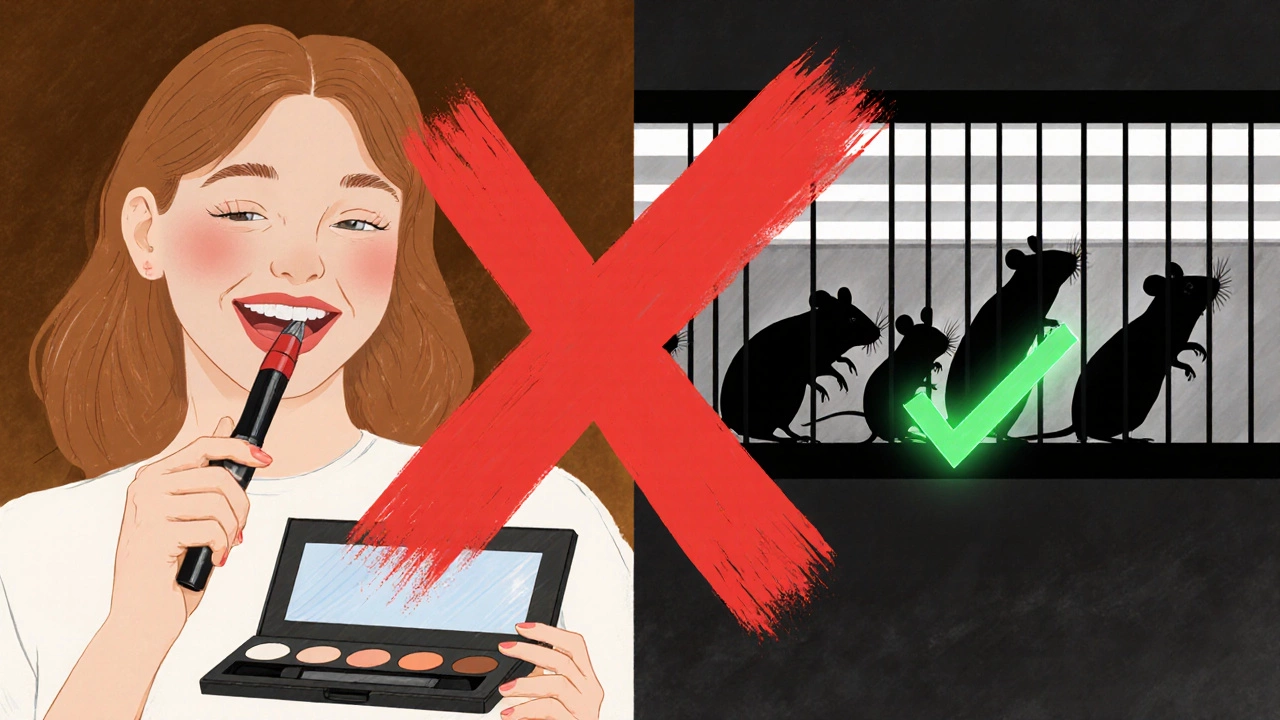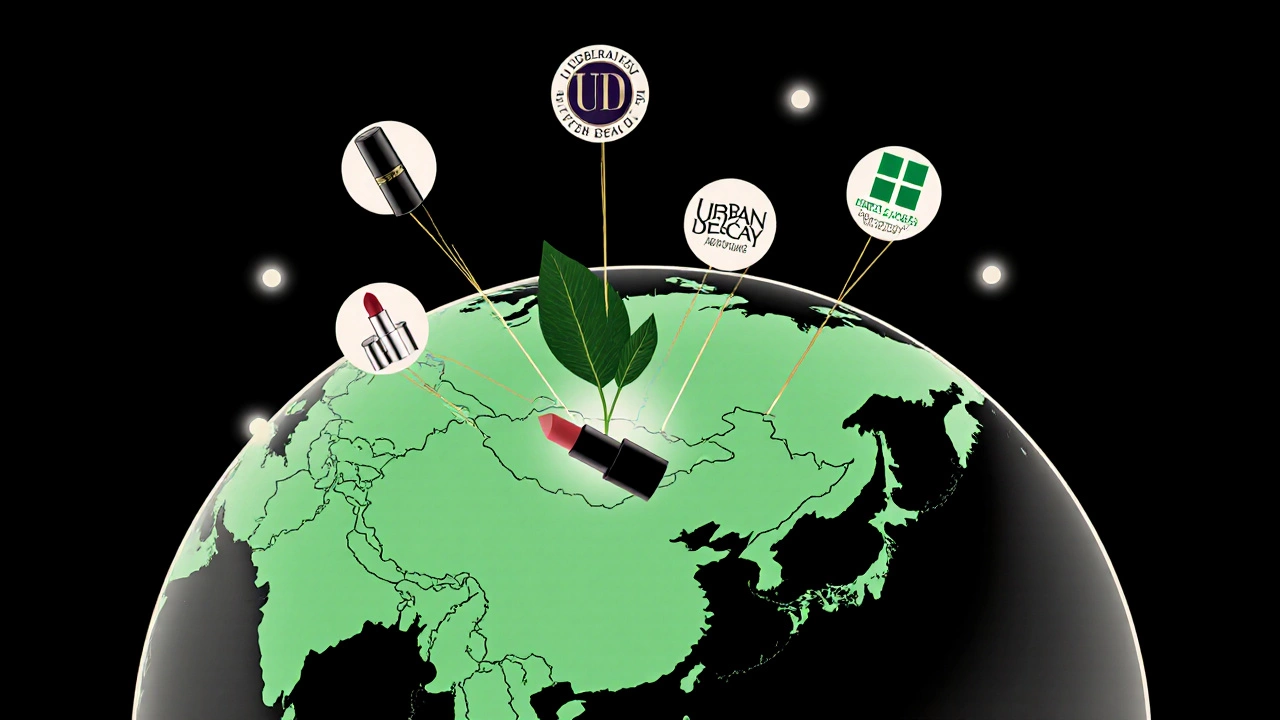
When you pick up a lipstick, eyeliner, or foundation, do you ever wonder if animals suffered to make it? Many people want to avoid products linked to animal testing-but finding brands that truly don’t test on animals isn’t as simple as reading the label. Some companies say they’re cruelty-free but still sell in countries where animal testing is required by law. Others use third-party labs that test on animals behind the scenes. It’s confusing. Here’s what actually matters, and which brands you can trust right now.
What Does ‘Cruelty-Free’ Really Mean?
The term ‘cruelty-free’ isn’t legally protected. That means any brand can slap it on a package-even if they test on animals in China, or pay a supplier who does. True cruelty-free means no animal testing at any stage: not by the brand, not by their suppliers, and not by third parties-even if a government demands it. And it doesn’t just mean the final product. Ingredients must also be free from animal testing, even if they were tested years ago.
Look for certification logos like the Leaping Bunny or Certified Vegan from PETA. These programs require companies to prove they have strict supplier audits and don’t sell in markets that force animal testing. Without these certifications, claims are just marketing.
Brands That Truly Don’t Test on Animals
Here are the top cruelty-free makeup brands that meet the highest standards as of 2025:
- Dr. Hauschka - German skincare and makeup brand certified by Leaping Bunny. Uses only plant-based ingredients and refuses to sell in mainland China.
- ILIA Beauty - Clean, high-performance makeup made in the USA. Certified by Leaping Bunny and PETA. Their packaging is also recyclable.
- Cover FX - Known for buildable, skin-loving foundations. They’ve never tested on animals and don’t sell in China.
- Kosas - Dermatologist-developed color cosmetics. Leaping Bunny certified. Their products are formulated without parabens, sulfates, or synthetic fragrances.
- Makeup Revolution - Affordable, trendy makeup sold globally. They’re PETA-certified and stopped selling in China in 2020 to stay cruelty-free.
- Fenty Beauty - Rihanna’s brand is PETA-certified and doesn’t test on animals. They don’t sell in physical stores in mainland China, avoiding mandatory testing.
- Urban Decay - A long-standing favorite among makeup lovers. They’ve been Leaping Bunny certified since 2012 and removed themselves from the Chinese market to protect their ethics.
- Hourglass - Luxury makeup that doesn’t compromise on performance or ethics. Fully Leaping Bunny certified.
These brands don’t just say they’re cruelty-free-they’ve made real choices to avoid markets that force animal testing. That’s the difference between greenwashing and real ethics.
Brands That Claim to Be Cruelty-Free But Aren’t
Some brands you might think are safe aren’t. Here’s what to watch out for:
- Maybelline - Owned by L’Oréal, they test on animals to sell in China. Even if their U.S. line says ‘not tested on animals,’ the parent company does.
- Estée Lauder - Owns Clinique, MAC, and Bobbi Brown. All of them sell in China and fund animal testing there.
- Chanel - Still sells in mainland China. Animal testing is required by law for imported cosmetics there.
- Benefit Cosmetics - Part of L’Oréal. Same issue as Maybelline.
- Too Faced - Was cruelty-free until 2022, when they entered the Chinese market. They now allow animal testing to happen on their behalf.
These brands may have cruelty-free lines in the U.S. or Europe, but if they sell in China, they’re complicit in animal testing. Buying from them supports a system that harms animals.

Why China Changes Everything
China used to require all imported cosmetics to be tested on animals. In 2021, they relaxed the rules for some ordinary cosmetics-but only if they’re made in China and sold domestically. Imported products still face mandatory animal testing. So even if a brand claims they’re not testing, if they’re sold in China through official channels, the government tests them anyway.
That’s why the smartest cruelty-free brands avoid China entirely. They won’t sell in physical stores or on platforms like Tmall or JD.com. Some brands sell through cross-border e-commerce, which is a gray area-but most certifiers still don’t approve them because the risk is too high.
If you want to be 100% sure, stick to brands that say: ‘We do not sell in China.’ That’s the clearest signal they’re serious.
How to Verify a Brand for Yourself
You don’t have to take our word for it. Here’s how to check any brand:
- Look for the Leaping Bunny logo on their website or packaging. This is the gold standard.
- Check leapingbunny.org for their official certified list.
- Visit PETA’s Cruelty-Free Database and search the brand name.
- Visit the brand’s official website. Look for a section called ‘Our Ethics’ or ‘Animal Testing Policy.’ If it’s vague, skip it.
- Search for: ‘[Brand Name] + China + animal testing.’ If there are news articles about them entering China, they’re no longer cruelty-free.
Don’t trust Instagram influencers or Amazon listings. Go straight to the source.

What About Vegan Makeup?
Vegan and cruelty-free aren’t the same. Vegan means no animal ingredients-like beeswax, carmine, or lanolin. Cruelty-free means no animal testing. A product can be vegan but still tested on animals. Or it can be cruelty-free but contain animal-derived ingredients.
If you care about both, look for brands that are certified as both vegan and cruelty-free. ILIA, Cover FX, and Kosa are good examples. Brands like Kat Von D Beauty (now KVD Vegan Beauty) are fully vegan and cruelty-free too.
What You Can Do
Every time you buy from a cruelty-free brand, you’re voting for change. The market is shifting. More people are asking questions. More brands are dropping China to stay ethical.
Here’s what you can do today:
- Replace one product with a certified cruelty-free alternative.
- Ask your favorite brand: ‘Do you sell in China? Will you stop if you have to test on animals?’
- Share this list with friends who care about makeup.
- Support smaller indie brands that are transparent and ethical.
You don’t need to buy everything new. Just make smarter choices with what you buy next. It adds up.
Final Thought: Ethics Aren’t a Trend
Cruelty-free isn’t just a buzzword. It’s about refusing to support systems that hurt living beings for the sake of lipstick shade or eyeliner pigment. The good news? You don’t have to sacrifice quality. Today’s cruelty-free makeup performs just as well as-and often better than-traditional brands.
There’s no excuse anymore to buy from companies that test on animals. The alternatives are here, they’re affordable, and they’re effective. Choose wisely. Your choices matter more than you think.
Are all vegan makeup brands cruelty-free?
No. Vegan means no animal ingredients, but the product could still be tested on animals. Cruelty-free means no animal testing, but the product might contain beeswax or carmine. Look for brands that are certified as both vegan and cruelty-free if you want to avoid both.
Can a brand be cruelty-free and still sell in China?
If they sell in physical stores or through official online channels in mainland China, they are not truly cruelty-free. China still requires animal testing for most imported cosmetics. Even if the brand doesn’t test themselves, the government does. Brands that stay cruelty-free avoid China entirely.
Is Fenty Beauty cruelty-free?
Yes. Fenty Beauty is PETA-certified cruelty-free. They do not test on animals and do not sell in physical stores in mainland China. They avoid mandatory testing by limiting distribution to cross-border e-commerce, which still allows them to reach Chinese customers without triggering government testing.
What’s the difference between Leaping Bunny and PETA certification?
Leaping Bunny is stricter. It requires independent audits of suppliers and a cut-off date for animal testing. PETA’s certification is based on a company’s signed statement. Leaping Bunny is the gold standard because it verifies supply chains. PETA is still reliable, but Leaping Bunny gives you more assurance.
Are drugstore brands ever cruelty-free?
Yes. Brands like Makeup Revolution, e.l.f. Cosmetics, and Pacifica are affordable, drugstore-friendly, and fully certified cruelty-free. Avoid big drugstore names like Maybelline, L’Oréal, or Revlon-they’re owned by parent companies that test on animals in China.
How do I know if a brand changed its policy?
Check the Leaping Bunny or PETA websites regularly-they update their lists monthly. Follow ethical beauty blogs or newsletters that track brand changes. If a brand you loved starts selling in China, they’re no longer cruelty-free, even if they used to be.